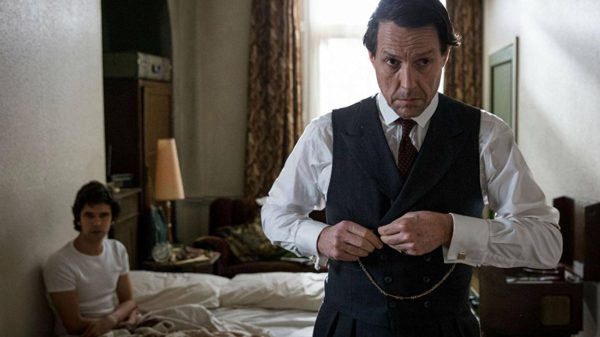Right now Hugh Grant is in the position any actor would envy – he has nothing to prove and everything to gain. Like all actors who make their name being very good in a string of rom-coms, Grant can now surprise everyone with unexpected roles that demonstrate his talents.
From last year’s Paddington 2 to A Very English Scandal now, he appears to be having the time of his life playing up to his persona while also being a damn fine performer.
While Grant has competition, he is the indisputable highlight of the new three-part BBC drama, which comes from Russell T. Davies and follows the rather unbelievable true story of Jeremy Thorpe MP’s trial for conspiracy to murder his former lover Norman Scott (Ben Wishaw).
A study on power as much as it is a look at politics and homosexuality (and the way they intersect) in the 60s and 70s, the series is a joyous and at times deeply uncomfortable portrayal of a man so desperate to hide that he’d burn the whole world down before admitting the truth about himself.
We begin at a lunch between friends inside the Houses of Parliament. Thorpe and his confidant Peter Bessell exchange pleasantries and inside jokes before moving on to the topic of men and women. Peter and Jeremy are both 80/20 on the scale, but Jeremy leans heavily towards men as a preference. It’s so casual, with neither man concerned with his surroundings or being ‘found out’, as it were.
It’s a scene integral to our understanding of Thorpe and the culture around him. Both men are protected by their status, and it is a status you suspect was sought out in order to offer such protection. At one point, they set about finding Thorpe a wife for no other reason than to improve his performance in the polls, and he is never concerned that this might prevent him from taking a male lover whenever he wanted.
From there, the first episode clips along at a pace one of Norman’s beloved horses would be proud of, with humour, poignantly ironic asides and rather ‘cheeky’ exchanges coming fast at the audience until, in an instant, the mood turns dark and rather dire, and we’re able to momentarily grasp the tragedy of the situation for both Thorpe and Norman on either side of the scandal.
While the closet is a blight on all gay men and women living in a time and place when their true desires are deemed illegal, it is also true that there are some who are not afforded the luxury of hiding. Norman is one of those men and, as Bessell says late in the episode, that makes him a dangerous foe for those who have far more to lose. It also makes him one of the strongest people in the world.
Our view of Thorpe is complimented even further by the modern liberal politics he stands for, whether that’s immigration or – ironically again – the legalisation of homosexuality. He’s not a monster, he says, but whether men are allowed to love each other makes no difference to him. If his relationships were to be made public, he’d take a gun to his head, he tells Bessell in a jarringly dark scene.
Because we know the outcome of his schemes, the final exchange in which Thorpe floats the idea of having Norman killed is as light-hearted as it is sinister. That’s the brilliance of A Very English Scandal in a nutshell – absolutely horrifying yet uproariously entertaining all at once.

